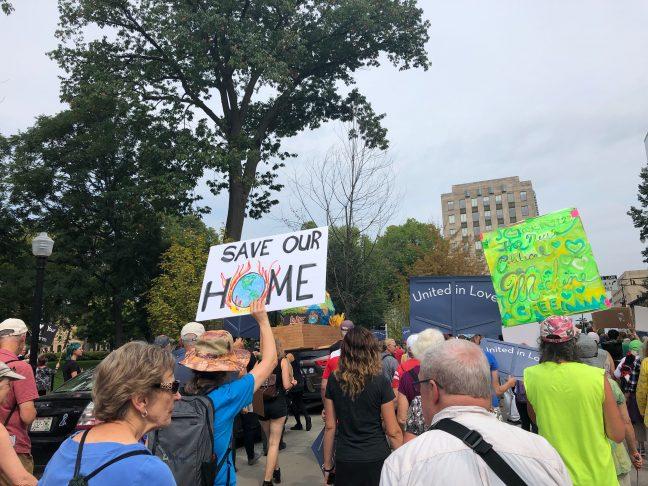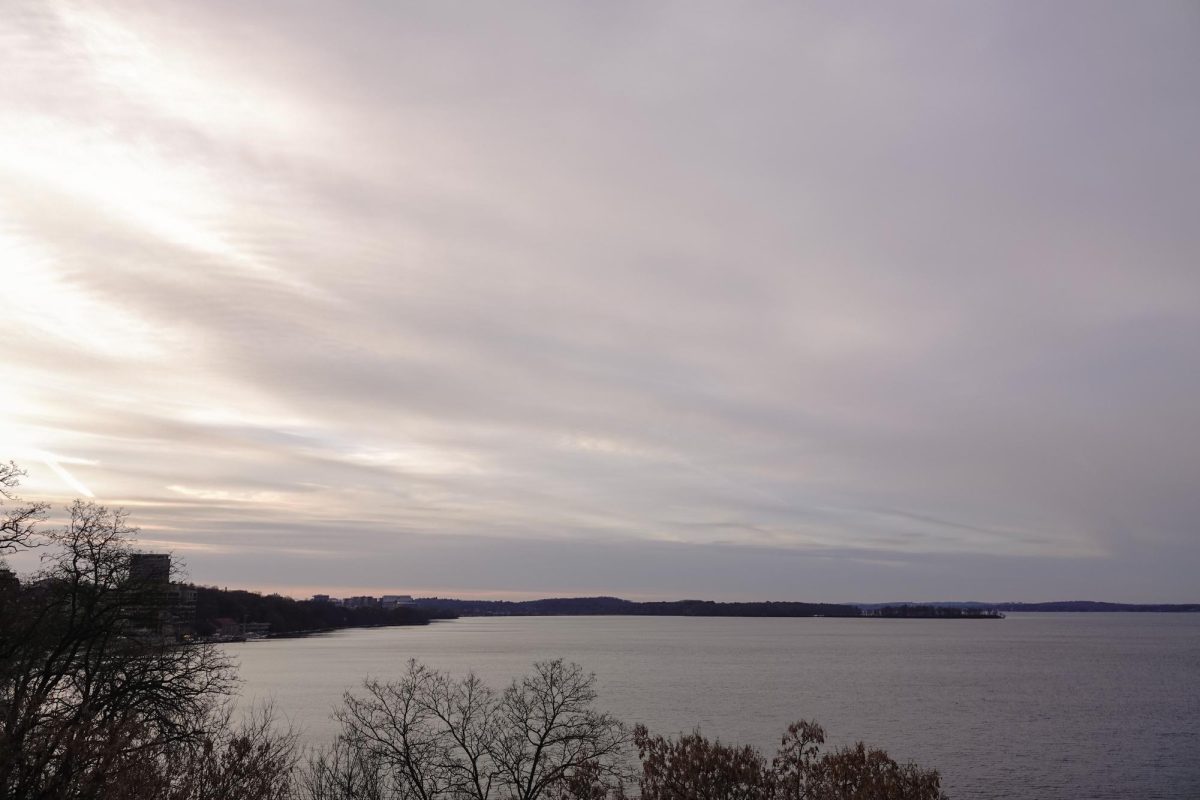As Congressional Democrats rushed to finalize and pass President Biden’s Build Back Better plan, grassroots climate activists organized to encourage Democrats not to abandon major green infrastructure investments they claim are crucial to combat climate change.
Five young members of the Sunrise Movement, the most prominent youth-led climate action organization, began a hunger strike outside of the White House Oct. 20 to draw attention to their movement and urge the Biden Administration not to cave on their climate policies, according to the Guardian.
Biden’s Build Back Better Act, his social spending bill, had whittled away from a $3.5 trillion price tag over ten years down to just $1.75 trillion as he attempted to secure the “yes” votes of key conservative Democrats, according to BBC News.
The Clean Electricity Performance Program — the bill’s centerpiece climate provision — was cut after Senator Joe Manchin, D-WV, publicly declared his opposition. The plan would have rewarded utility companies for using renewable energy and made polluters pay for the amount of carbon dioxide they release into the atmosphere, according to CBS News.
Manchin — who represents the red state of West Virginia and is considered to be the most conservative Democrat in the Senate, according to Progressive Punch — has frustrated activists with his opposition to broad climate change legislation and his ties to the fossil fuel industry, which they say should make him ineligible to chair the Energy and Natural Resources Committee.
In an evenly divided Senate where Democrats are required to be in lockstep in order to pass a package, Manchin had effective veto power over Biden’s legislation, according to CNBC.
Though, there are signs that the grassroots climate movement is able to wield the power of its own and get its initiatives in the social spending package. The bill contains $555 billion earmarked for climate infrastructure, which represents the largest investment ever made in the United States’ history, according to The Washington Post.
Climate activism has not been limited to Washington D.C. as protestors in Wisconsin and other northern states have increasingly turned their attention to fighting pipelines that carry oil from the resource-rich areas of Canada to the United States.
On his first day in office, President Biden fulfilled a key campaign promise by blocking the controversial Keystone XL pipeline, but now activists have focused on other pipelines that do the same thing — notably Line 3, according to the Wall State Journal.
Line 3 to begin operation this weekend, violating treaties with Indigenous peoples
Line 3 was built in the 1960s by the Canadian oil company Enbridge, but the pipes are currently cracked, corroded and able to carry just one-half of the tar sands it originally could hold. The company has proposed replacing the pipeline rather than conducting maintenance on the current infrastructure, arguing that this project is crucial, according to MPR News.
“Line 3 has been and continues to be, an essential component of Enbridge’s pipeline transportation network to deliver the crude oil needed by refiners, and used by residents,” according to the Enbridge website.
Local and tribal leaders disagree, noting that this proposal opens up a new part of the state to oil spills. Enbridge remains notorious for the 1991 spill on the current Line 3 route in Grand Rapids, Minnesota, which represents the largest inland oil spill in U.S. history, according to MPR News.
Diversity of perspective, approach important to fighting climate change, writer says
The pipeline’s violation of native land is also in question. The current proposal would connect Hardisty, Alberta and Superior, Wisconsin. Honor the Earth, an indigenous environmental group opposed to the pipeline, says that the proposal violates several treaties made between the Anishinaabeg people and the American government, according to the Honor the Earth website.
Honor the Earth leader and longtime political activist Winona LaDuke commented on the situation.
“The U.S. government has a responsibility under federal law to honor the rights guaranteed to tribal members in their treaties,” LaDuke said. “The proposed Line 3 corridor violates the treaty rights of the Anishinaabeg by endangering primary areas of hunting, fishing, wild rice, and cultural resources in the 1855 treaty territory.”
The Sunrise Movement has drawn support from the Resist Line 3 movement as the two are allied by the common goal of pushing the current administration further left on environmental policy. Resist Line 3 recently tweeted in support of the “brave” hunger strikers in D.C.
350 Madison hires executive director, hopes to increase climate crisis awareness
Sunrise has returned the favor by declaring its support for those protesting the pipelines. One of the five activists currently on the hunger strike, Paul Campion, said why they are on this strike.
“We are on hunger strike to demand Biden deliver on his climate justice promises,” Campion said. “Biden must use the full powers of the presidency to respect indigenous sovereignty and stop Line 3. His failure to do so is a major breach of trust, inconsistent with his commitments, and deadly for our communities.”













